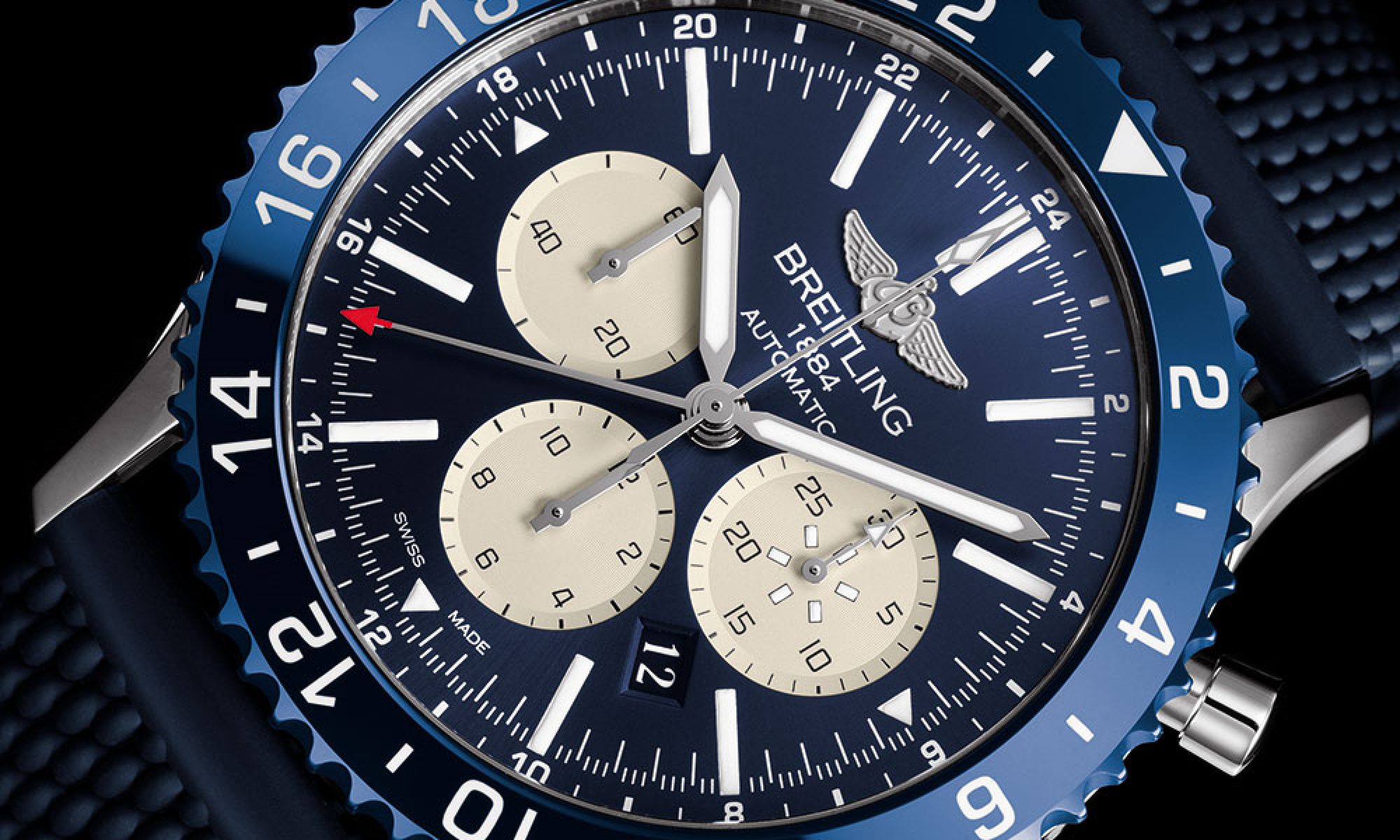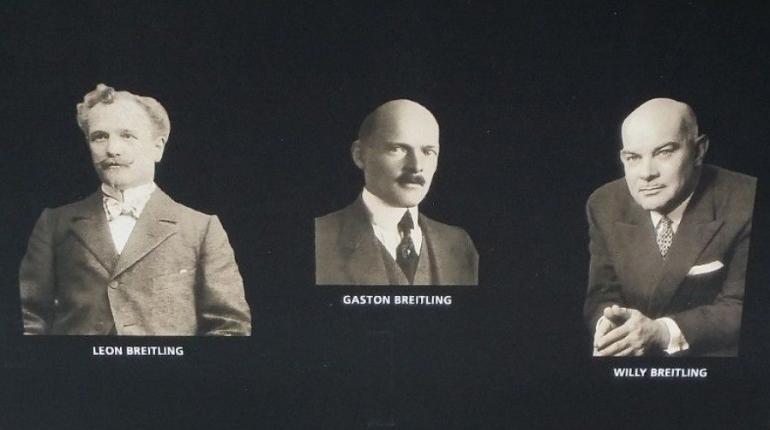“Breitling: Instruments for Professionals.” Many watch enthusiasts will be more than familiar with this slogan, and I would be willing to bet we all could rattle off a few of Swiss made replica Breitling’s most famous models. Let’s be real – who among us has not heard of the scuba-ready SuperOcean replicas or the legendary aviation chronograph, the perfect Breitling Navitimer copy watches? Some of us may not realize though just how important Breitling has been to the watch industry throughout its illustrious history.
Unfortunately, a truly comprehensive review of the brand and all of its models is beyond the scope of this article. We do hope, however, that this two-part overview will highlight the most important moments in Breitling’s history, and help to further educate fellow watch lovers on the innovations and icons that make the brand so respected to this day. That said, let’s hop in the time machine, buckle up, and learn about the man who started it all.
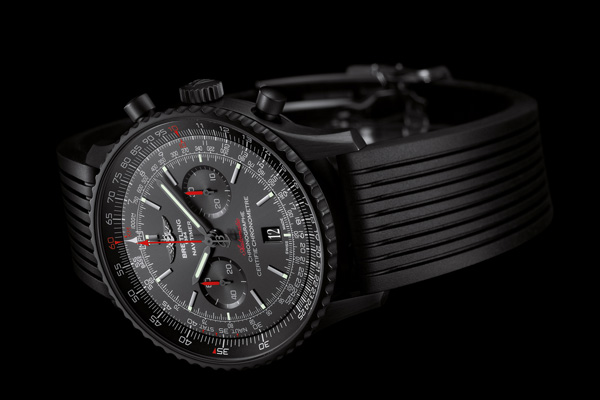
Léon Breitling
Léon Breitling was born in 1860 to German parents in Saint-Imier, a small village in the Swiss Jura watchmaking region. Growing up in a place where watchmaking was a way of life, it is no surprise that Léon’s interest in the craft blossomed. He began a watchmaking apprenticeship as a teenager, and in 1884, proceeded to open his own watchmaking workshop in his hometown of Saint-Imier. At the time, the village was also the home of watchmakers Longines and Marvin.
From the company’s inception, Breitling focused intently on the production of chronographs. In the late 19th century, there was an increasing demand for high-precision timing instruments for military, industrial, and scientific applications, as well as for competitive sports. Léon Breitling wasted no time in applying his passion to the pursuit of chronometric excellence. He set to work producing chronographs of the highest caliber, always keeping one eye to the future and innovation at the forefront of his work. Breitling’s first major innovation in chronograph technology came in 1889 with his first patent.
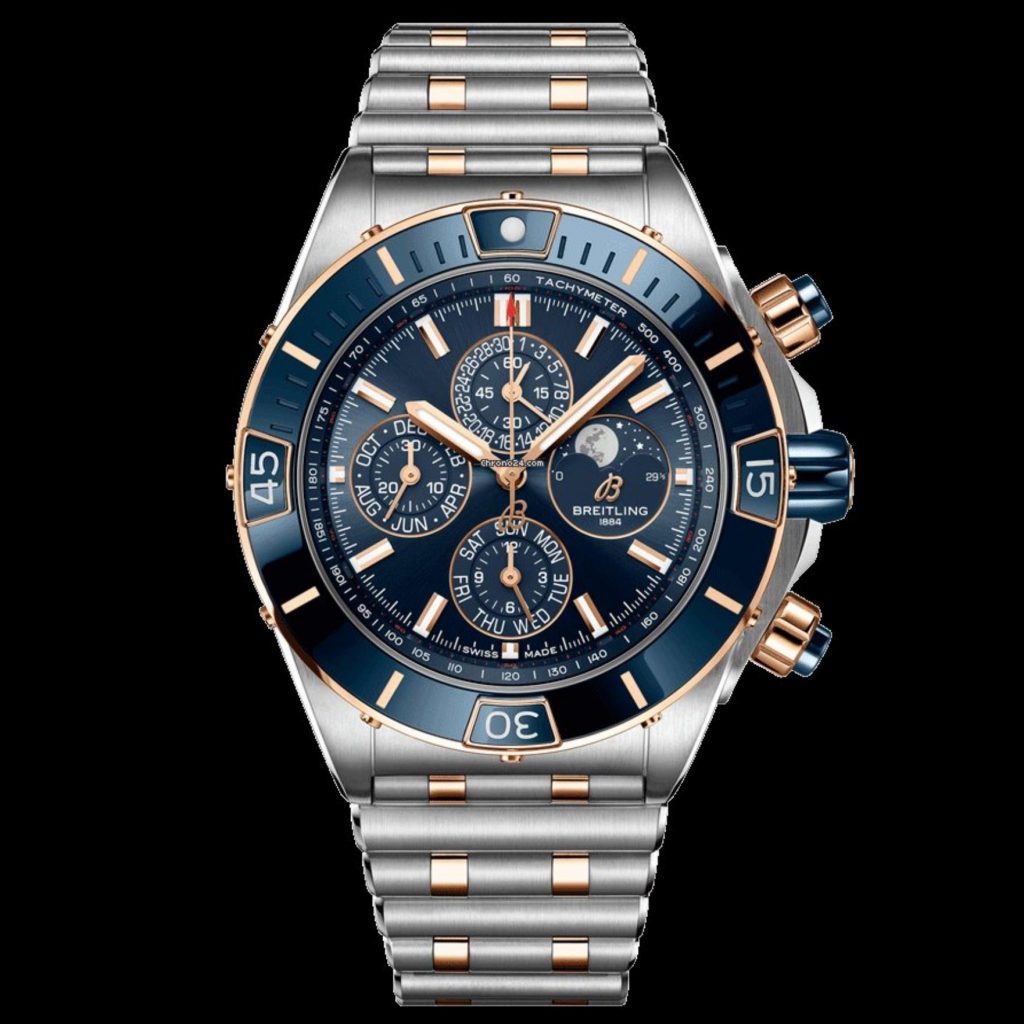
Chronographs
Since the invention of the first pocket stopwatch, the “Compteur de Tierces,” by Louis Moinet in 1816, chronographs had featured a pusher located next to the crown for start, stop, and reset functions. Breitling, however, wanted to streamline the design. On May 22, 1889, just half a year after the founding of the Swiss Federal Intellectual Property Agency, Breitling applied for patent number 927. Breitling’s patent not only integrated the chronograph function pusher into the crown for the first time, but also significantly reduced the number of components necessary for the start and stop functions. This meant that the watch could not only be produced more efficiently but also be maintained more easily.
Breitling’s efforts did not go unnoticed, and his chronographs drew critical acclaim. The company’s growing reputation and the demand for its products helped prompt a relocation to La Chaux-de-Fonds in 1892. As opposed to Saint-Imier, La Chaux-de-Fonds was more modern and industrialized, and labor was more plentiful. Taking out a full-page color advertisement on page two of the Indicateur Davoine, the primary source of watchmaking-related information at the time, Léon Breitling announced his move to the booming watchmaking metropolis.
The ad boasted of Breitling’s patents and Swiss made fake watches equipped with in-crown monopusher functionality, rattrapante complications, and 10, 30, and 60-minute totalizers. The brand set up its production facility in a brand new building next to a newly-built city park, on a mountain both overlooking and viewable from the entire city.
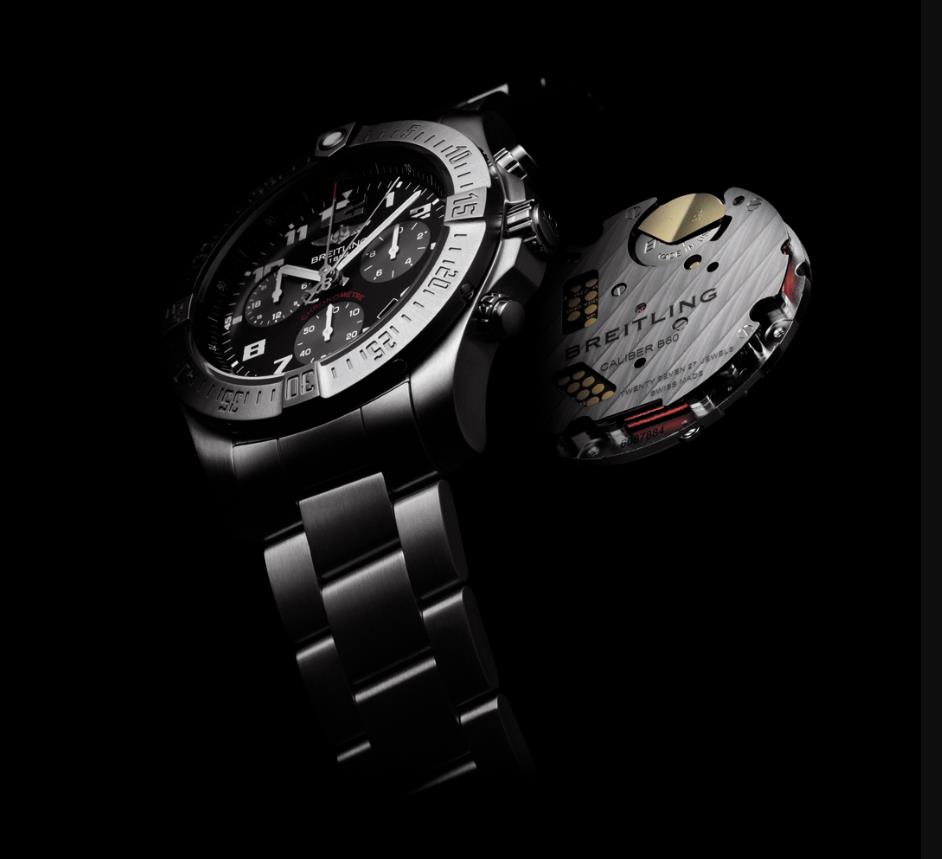
A golden age
In the first decade following Breitling’s relocation, the manufacturer’s reputation thrived, and its best replica watches UK surged in popularity. Léon Breitling’s former one-man operation grew to employ 60 people, and in 1893, Breitling patented a stopwatch movement with an 8-day power reserve. In 1896, the brand also patented a chronograph that was accurate to two-fifths of a second — accuracy that was unheard of at the time. Although not the inventor of the pulsograph (a logarithmic scale for measuring a person’s heart rate), Breitling did incorporate it into select models, which were held in high esteem by medical professionals of the day. Between 1892 and 1902, Breitling sold over 100,000 chronographs and stopwatches.
In 1900, a tiny road was built behind the factory named Ruelle Montbrillant, and though the physical location of the factory did not change, its address did. While this may seem insignificant, Breitling used it as a clever marketing tool. Capitalizing on the majestic sound of the “Brilliant Mountain,”, Breitling began using it in their advertisements and even as the name of models in their lineup. Notable watch models included the Sprint, the Montbrillant, and a watch that would both convenience and distress early motorists, the Vitesse.
In 1905, Léon Breitling patented a simple tachymeter, which could be used to measure a vehicle’s speed over a fixed distance. He featured this on the dial of the aptly-named Vitesse, which means “speed” in French. The tachymeter came in particularly handy to drivers in the early 20th century whose automobiles did not yet feature a speedometer. It was, however, also particularly handy for the police, and shortly thereafter, the very first speeding ticket was issued in Switzerland thanks to Breitling’s Vitesse timer.
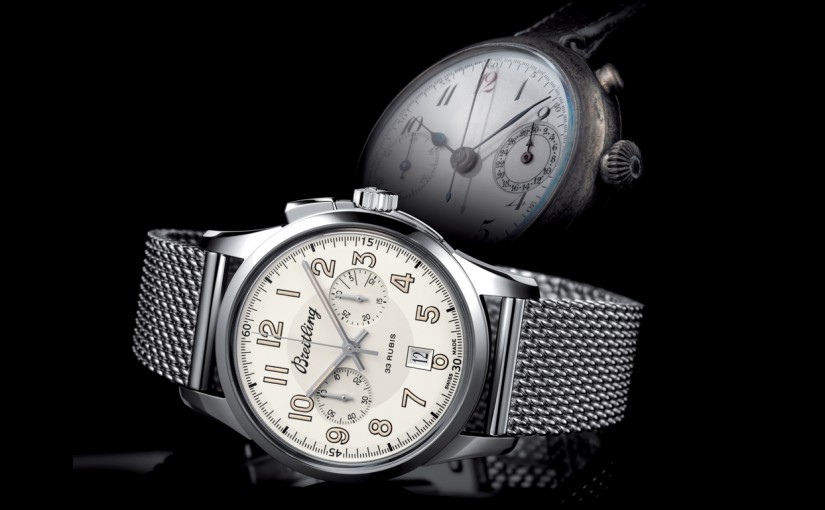
Passing the torch
Léon Breitling remained at the helm of his fabrique d’horlogerie until his death in 1914. Ownership of the brand then passed to his only son, Gaston Breitling. The heir to the manufacturer further embraced the regal imagery of the factory’s Ruelle Montbrillant location and changed the name of the company to G.-Léon Breitling S.A. Montbrillant Watch Manufactory. Gaston inherited not only his father’s knack for marketing but also his zeal for chronograph innovation. Since the time Léon Breitling had pioneered the integration of the function pusher into the crown of pocket chronographs, many other manufacturers had followed suit.
Now, however, the demand for wristwatches was rising, and wrist chronographs were no exception. In 1913, back in Breitling’s original home of Saint-Imier, Longines had released the very first chronograph wristwatch, the 13.33Z. The function pusher on this model had also been integrated into the crown as a carryover from pocket watches replica online. In a somewhat ironic attitude shift, however, Gaston Breitling realized that in the case of a wristwatch (perhaps due to the angle at which it was worn on the wrist) it would be indeed more user-friendly to separate the pusher from the crown once again. Therefore, in 1915, Breitling released the first wrist chronograph with the pusher relocated to the two-o’clock position.
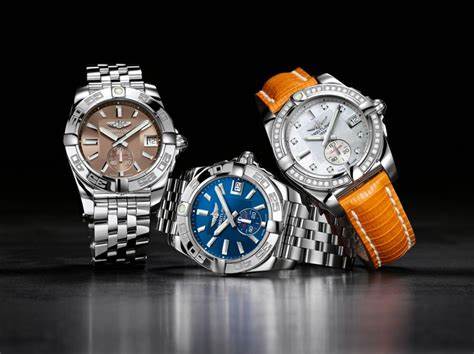
A twin-pusher revolution
In 1923, Gaston Breitling also pioneered the first chronograph with two function pushers, one for the start/stop functions, and a separate one in the crown for the reset function. Although it was a pocket watch, it nevertheless marked the first time in chronograph history that an elapsed time could be measured, paused, noted, and resumed. Depending on the application, it could also be used to measure two separate elapsed times in sequence without needing to reset to zero. Separating the reset function from the start and stop was an innovation in chronographs that would be further explored by Breitling in the following decade.
Gaston Breitling unexpectedly passed away in 1927, leaving his only son, 14-year-old Willy Breitling, as the next heir to the Breitling legacy. At only 14, however, Willy was too young to take control of the company, and for the next five years, Breitling was managed by an external team hired by the family. Thankfully, although not under the direct control of Willy Breitling at the time, the brand managed to survive the Wall Street crash of 1929 and the subsequent Great Depression. In 1932, at just 19 years of age, Willy Breitling emerged to take the reins of his grandfather and father’s legacy.
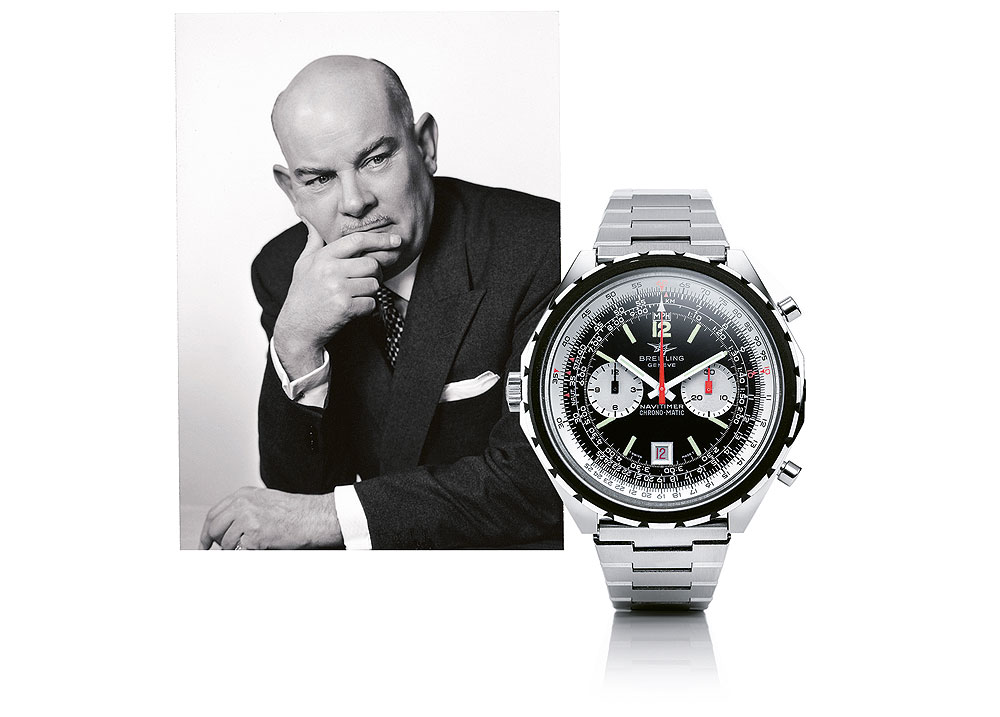
A youthful surge
Despite his relative youth, Willy Breitling wasted no time in continuing the brand’s innovative streak. Following his father’s 1923 introduction of a pocket watch with a separate chronograph reset pusher, in 1934, Willy Breitling patented the world’s very first chronograph wristwatch with a separate reset pusher. This reset pusher, however, in contrast to his father’s design, was not integrated with the crown, but independent from it and located at the four-o’clock position. This pusher layout is what many watch enthusiasts will recognize as our modern-day industry standard.
In addition to its wristwatches super clone online, Breitling’s cockpit chronographs for aviators were also in high demand. When Willy Breitling took control of the company, there were more than 40 wristwatch and cockpit chronograph models in the company’s lineup. The 1930s were marked by increased production of these professional instruments, and Willy Breitling developed the Huit Aviation Department in 1938. “Huit,” meaning “eight” in French, was in reference to the 8-day power reserve still proudly utilized by the company in several of its professional wristwatches and cockpit clocks.
These timepieces were also revered for their sturdy but lightweight cases and stark black dials with luminous hands and numerals. , With World War II ominously approaching, the British Royal Air Force, recognizing the quality of these Breitling’s cockpit instruments, placed a large order with the brand. The RAF equipped many of their bombers with the Breitling’s formidable cockpit chronographs. It was these bombers, reliant on the precision of Breitling’s onboard chronographs, that would go on to play a pivotal role in the victory of the Allied Forces.
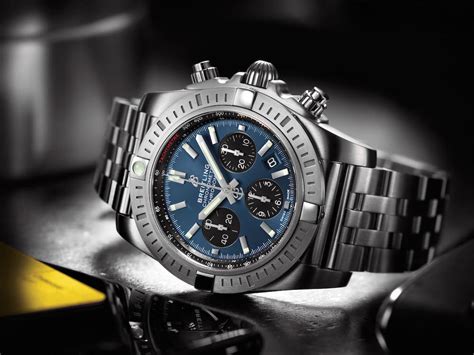
Historically important pieces galore
Willy Breitling’s contributions to the brand’s impressive history didn’t stop there, however. Under Willy’s leadership that so many of the brand’s historically important models, and even ones still in production today, would be introduced. The first of these to ring a bell with modern-day enthusiasts is the best replica Breitling Chronomat watches. Patented in 1940 and brought to production in 1941, the Chronomat featured a patented inner rotating slide rule. Breitling now refers to this model as “the smartwatch of its time,” and indeed, the slide rule gave mathematicians, scientists, and sportsmen of the time unprecedented convenience. With a turn of the bezel, one was able to quickly perform conversions of speed and distance from imperial to metric and vice-versa, multiplication, division, and other mathematical operations. It’s easy to see how, in an era before electronic calculators, this would have been both groundbreaking and useful.
The 1940s also saw the release of the Swiss made replica Breitling Premier, Duograph, and Datora lines. Debuting in 1943, the Premier line marked the first time that the brand marketed a chronograph specifically for civilian use. Available in diameters of 32, 35, and 38mm, the Premier was produced in both steel and solid gold and was particularly aimed at a male clientele who prided themselves on style and elegance. These AAA perfect UK sale copy watches, as many of Breitling’s models of this era did, used robust Venus calibers such as the 175 and 178, providing both compur (sub-dials at 3 and 9 o’clock) and compax (the traditional v-shaped sub-dial layout of 3,6, and 9 o’clock, often erroneously referred to as “tri-compax”) layouts.
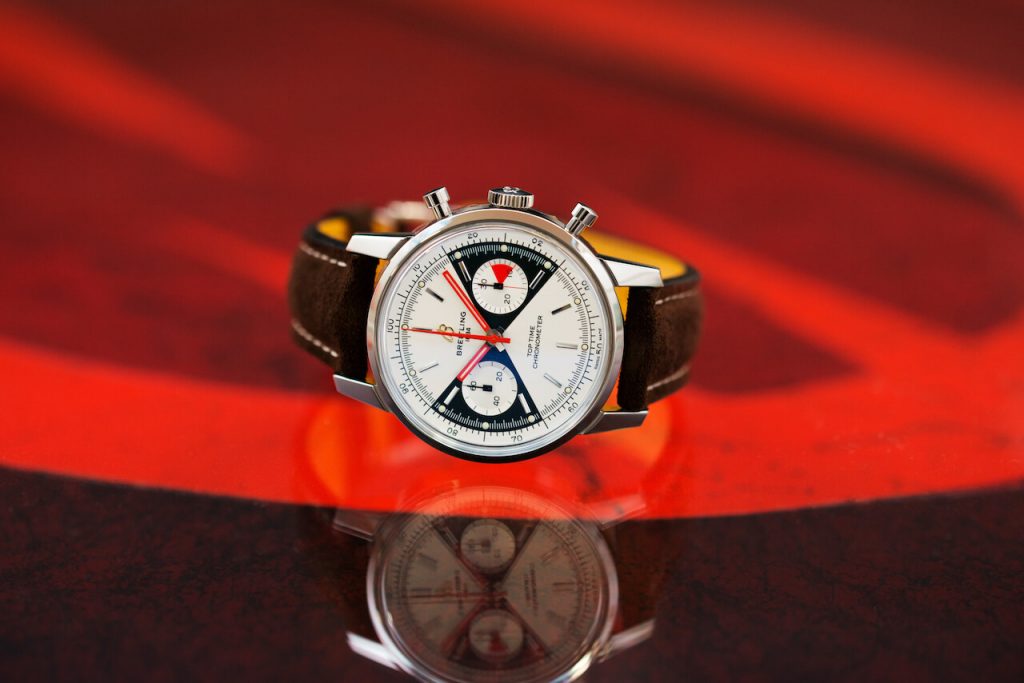
Venus ascending
Though many brands in this era had opted for Valjoux calibers to power their high imitation watches, Breitling’s partnership with Venus since the 1930s meant that they were one of the first brands with access to the 179 caliber, a rattrapante (split-seconds) movement revered among collectors even today. In 1944, they debuted this caliber in the Duograph line. The Duograph followed the design language of the Premier, providing an elegantly styled casing for one of watchmaking’s most intricate complications. Around the same time (in either late 1943 or early 1944), the Datora was released. Released after the end of World War II, the Datora combined a chronograph with a full calendar displaying the date with an often central pointer hand, and the month and day in apertures at the top of the dial. Over its lifetime, the Datora line would use a wide range of Venus and Valjoux calibers, and interestingly, would go on to be produced both with and without a chronograph.
Breitling’s hits continued into the 1950s, starting with the release of the Unitime in 1951. As international travel was becoming more commonplace, pilots and travelers alike desired the ability to quickly reference the current time in different parts of the world. The Unitime was Breitling’s first release with a world time complication and utilized an outermost ring with 24 cities that could be adjusted to an inner ring with a 24-hour scale, displaying all times in the world’s (then) 24 time zones concurrently. Though this complication had been produced by other manufacturers such as Patek Philippe, Vacheron Constantin, and Rolex since the 1930s, given that Breitling’s name had become nearly synonymous with all things aviation, it came as no surprise that a world timer found its place in the catalog.
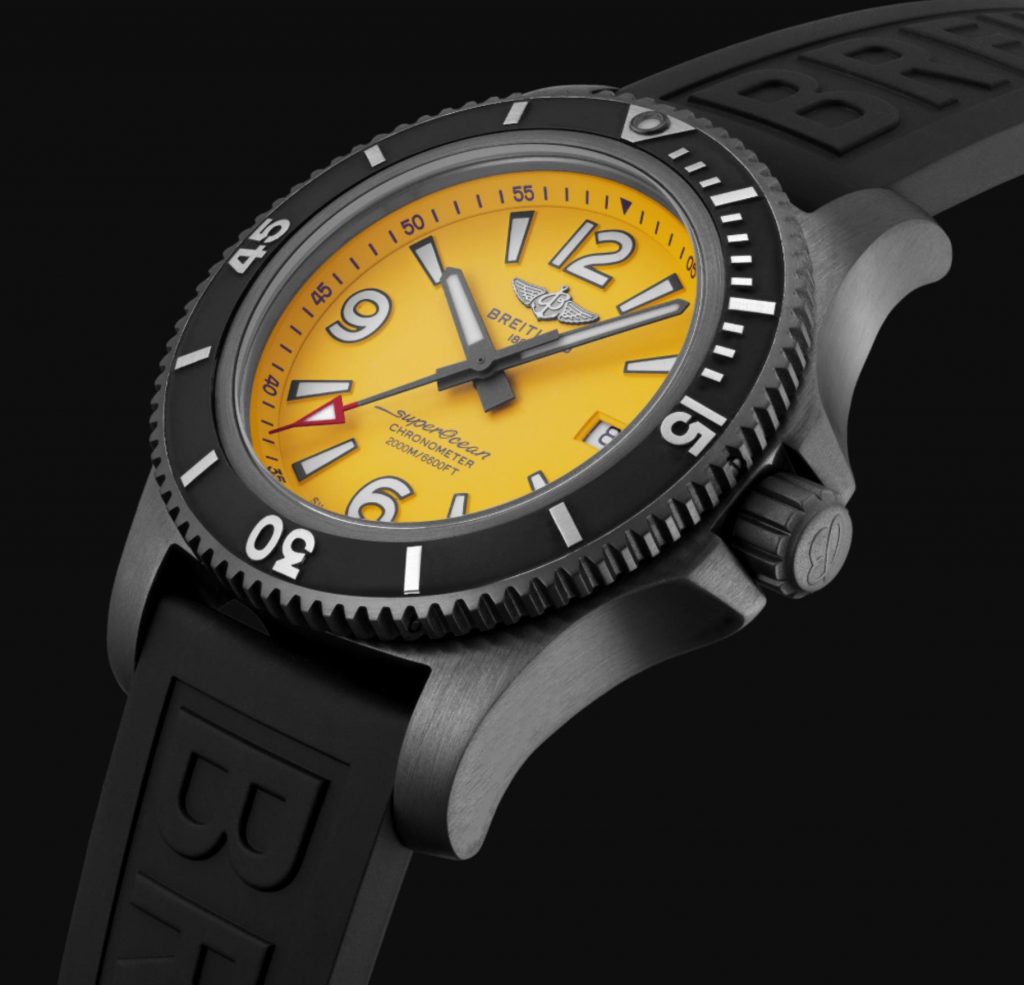
The 1950s will never be forgotten…
It was also in the 1950s that arguably the brand’s most beloved and iconic models would be released, starting with the 1952 debut of the now legendary Navitimer. This watch was developed after Willy Breitling was approached by the US Aircraft Owners and Pilots Association and asked to design a new chronograph for its members. Breitling went all in on the idea, resulting in the release of Navitimer, the pilot’s ultimate wrist companion.
The watch, housed in a large 41mm case, combined a chronograph with what is, even today, the watch’s most notable feature, the slide rule bezel. While you may remember that the circular slide rule made its debut on the Chronomat in 1941, Breitling modified its previous design, and included all necessary flight-specific functions, such as the ability to measure fuel consumption, distances traveled during ascent and descent, and the conversion of nautical miles to land miles or kilometers.
The watch was initially sold only to AOPA members, and was available with an all-black dial, luminous Arabic numerals and hands, and an AOPA-signed logo at the 12-o’clock position. It became an instant hit, and a few years later, Breitling released a version with an unsigned logo to the general public. By the late 1950s, virtually every pilot traveling overseas was wearing a Navitimer. Throughout the following decades, the watch would not only see several iterations but would come to be recognized as an icon both of function and style among pilots and the general public alike.
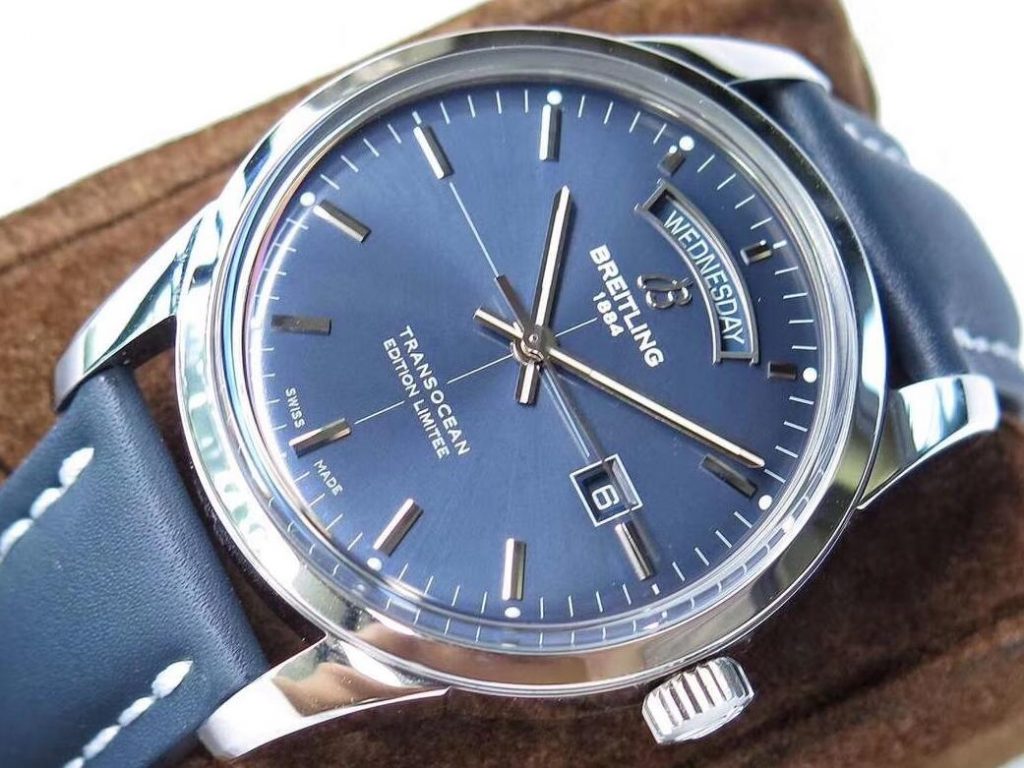
The SuperOcean joins the fray
1957 saw the release of yet another of Breitling’s current-day icons, the waterproof AAA fake Breitling SuperOcean. The replica watch was Breitling’s first foray into dive watches replica, which had become increasingly popular since the commercial release of the Blancpain Fifty Fathoms and Rolex Submariner in 1953 and 1954, respectively. The watch was designed to mark Willy Breitling’s 25th anniversary as head of the company and featured an inward-sloping rotating bezel, bold dart-shaped luminous hour markers, luminous hands, and a stainless steel case water-resistant to 200m. It was released concurrently in both a standard 3-hand version and a chronograph version. Remarkable for the time, the chronograph model managed to maintain a water resistance rating of 200m, despite its lack of screw-down pushers.
In 1958, Breitling released the high quality replica Breitling Transocean watches. The watch was aimed not at pilots, but rather, at passengers of intercontinental flights in the golden age of global travel. Although a refined design with its dauphine hands, baton hour markers, crosshair dial, and date window at three o’clock, the model boasted an impressive COSC-certified chronometer movement, was anti-magnetic, shockproof, and “super sealed” for ultimately reliability.
